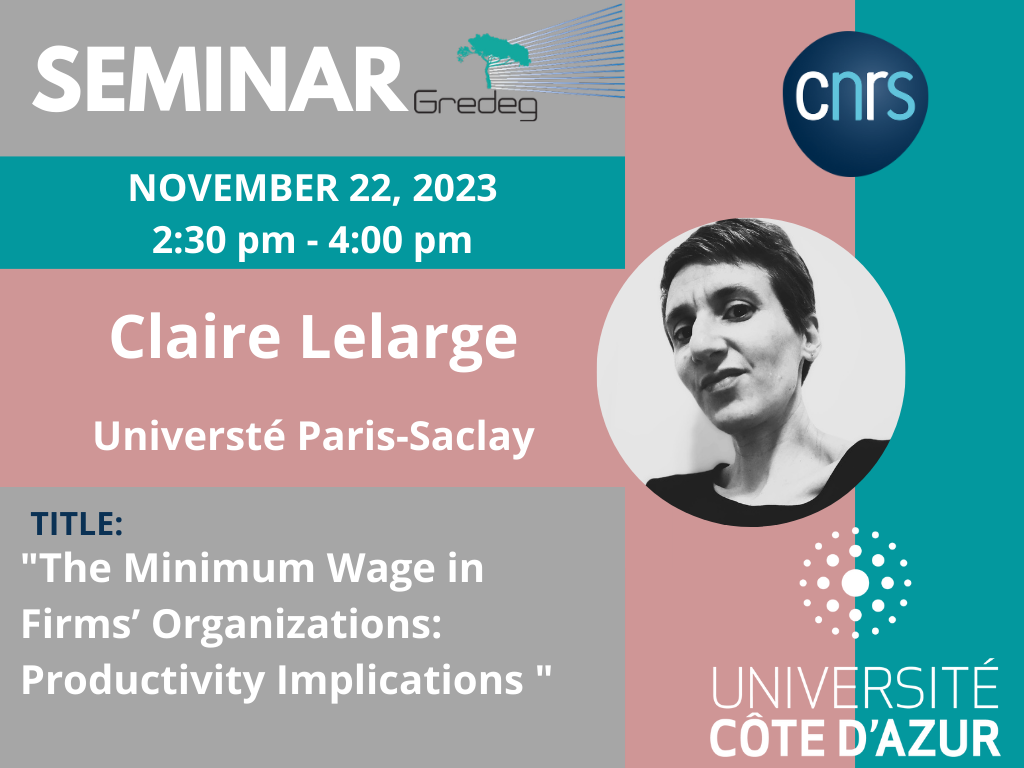Aller au contenu
Aller au contenu
Navigation
Accès directs
INTRANET / ENT
Séminaire GREDEG : Claire LELARGE (Paris Sud- Saclay)
Publié le 17 octobre 2023
–
Mis à jour le 9 septembre 2024

Laboratoire GREDEG
Date(s)
Le
22 novembre 2023 14:30
- 16:00
https://gredeg.univ-cotedazur.fr/seminaire-gredeg-claire-lelarge-paris-sud-saclay

